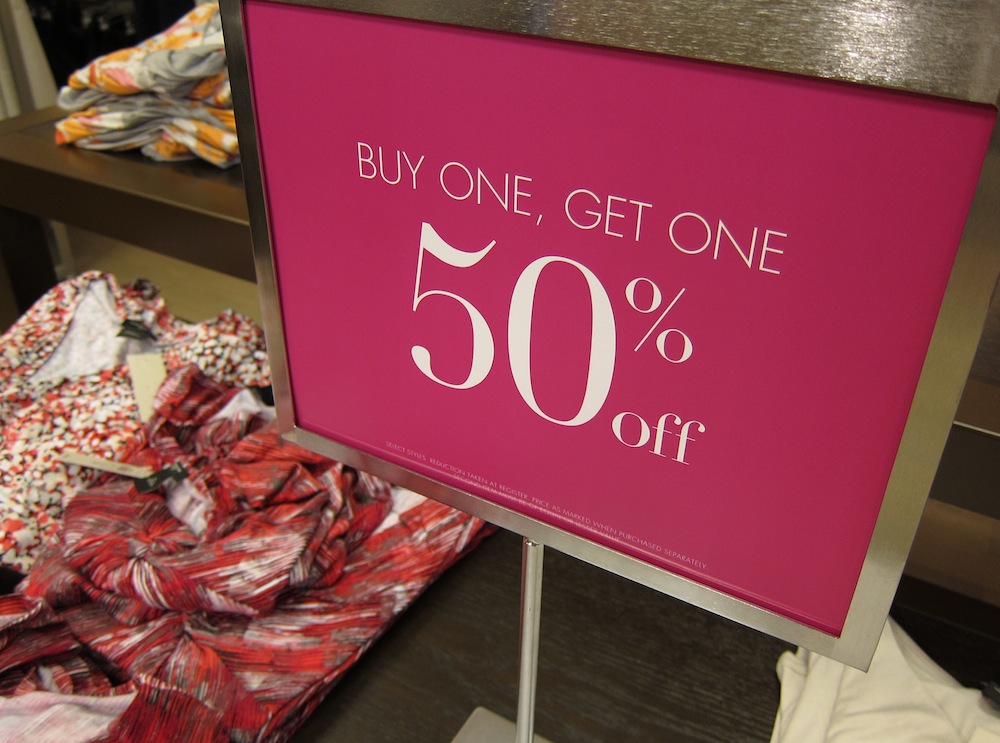Into an already crowded group buying market, Google Offers and Facebook Deals have launched. It’s tempting to think the power of both will swamp existing players like Groupon and Living Social, but will the search engine and social media giants eventually dominate the group buying market.
There’s a number of barriers to success in the group buying industry; securing a steady supply of compelling offers, generating a community of followers, building a sales team and dealing with customer service issues are just a few. For both Facebook and Google these obstacles are not just a matter of money or scale.
The power of Google
Google’s clear strength lies with its local search functions. Google Places is an excellent fit for group buying services, a point not lost on many of the existing players who use Google Maps and the local business service to support their offers. Merchants can already use the free vouchers feature in Google Places and proactive businesses are already doing this.
Leveraging their existing voucher features into paid group buying services should be one of the easier tasks for Google Offers’ management. Search itself is a powerful tool for merchants offering group buying services, I might not be interested in dog washing or personal training services in my neighborhood, but if I’m online searching for a holiday a group buying offer for discount meals or car hire in Miami may well attract me.
Facebook’s power
Adding social media to group buying is a pretty powerful combination and one that many of the early services leveraged extremely well, so Facebook’s entry into group buying should worry the existing platforms. Being able to segregate deals by geography, demographics, friends and likes is another example of how powerfully Facebook’s advertising can be targeted.
Merchants who use the Facebook service can be pretty confident their ads will hit the right audience rather than being blasted across a mailing list of indifferent subscribers. Coupled with this is the use of Facebook credits. While Facebook aren’t going to make them directly redeemable for gift vouchers or cash at this stage, they still add to a compelling package Facebook can offer both advertisers and customers.
The customer service dilemma
One thing that makes a group buying service successful is the delivery of well timed, compelling deals. This means a hands-on sales and support team. Like most web2.0 businesses, both Facebook and Google aren’t particularly good at face-to-face, or phone-to-phone interactions with customers.
A challenge for both companies will be to attract management talent that can run the sales teams necessary to provide attractive daily deals while dealing with the inevitable consumer service tasks that come with selling direct to the public.
Channel conflict
Facebook and Adwords advertising have been big lead generators for the existing social media platforms and it’s going to be a challenge for both companies in managing the conflicts which will appear between their advertising and group buying platforms.
Those advertising channels are both organisations’ primary source of revenue, so these are going to take priority over other initiatives. Both services’ group buying operations may interfere with their advertising revenue by discouraging or competing with paying advertisers and this will be a major challenge for both Facebook and Google to manage.
Are we over group buying?
That effort to find compelling deals is a problem for all group buying services and we’re seeing the saturation problem with many of the providers as they struggle to find compelling daily deals in all of their markets.
Being late to the markets means both Google and Facebook are going to face exhausted buyers and merchants who been saturated by the dozens of services that have appeared in the last twelve months.How many consumers and businesses are prepared to sign up to YAGS (Yet Another Group buying Service)?
There’s also the issue that group buying might be a passing fad; many of the merchants advertising on these services are service businesses grimly hanging onto failing business models built on the late 20th Century idea of unlimited credit driven consumer demand.
Many of their customers too are cash strapped consumers shopping around for cheaper deals – a discount haircut here, a cut-price meal there – as a way to maintain the lifestyles that are becoming unaffordable in an economy where jobs aren’t as secure, credit isn’t as easy and retirement savings looking uncertain.
As it becomes apparent to both consumers and merchants that most of the group buying services aren’t meeting their needs then the demand for these service is going to drop away.
That’s not to say group buying is a dead model, but it appears the market is overheated with way too many suppliers.
Having deep pockets may well turn out to be why Google and Facebook end up being the sole survivors from the inevitable group buying shakeout, but it doesn’t mean they’ll actually be the best players, or they’ll make any money from it.
Given how late both Facebook and Google are to this market it’s hard not to think they are repeating the mistakes of previous market incumbents in other sectors of ignoring a market until becomes a shiny trinket which every dynamic corporation should have a presence in.
In that respect it’s a bit sad that relatively young corporations like Facebook and Google are overlooking genuine innovation and using their skilled teams to build me-too products rather than finding and building new markets. Hopefully the time taken to build their group buying services won’t distract these companies from their core businesses.

Leave a Reply